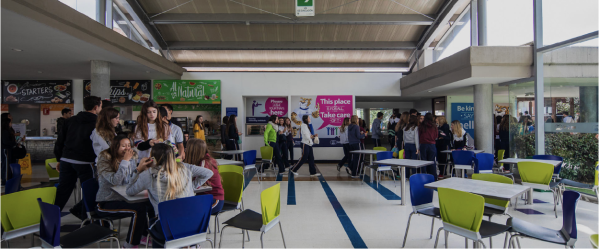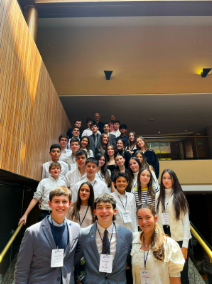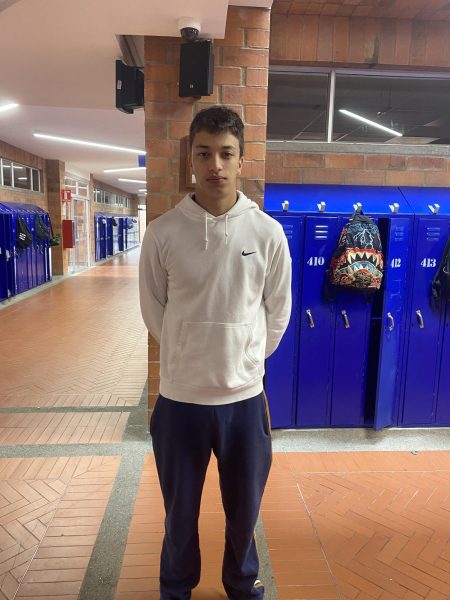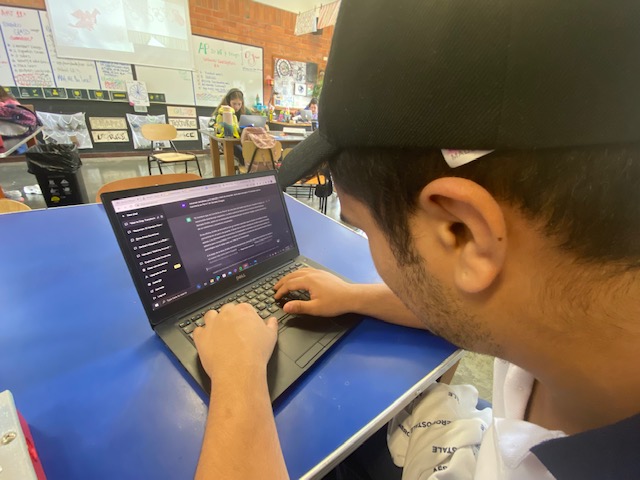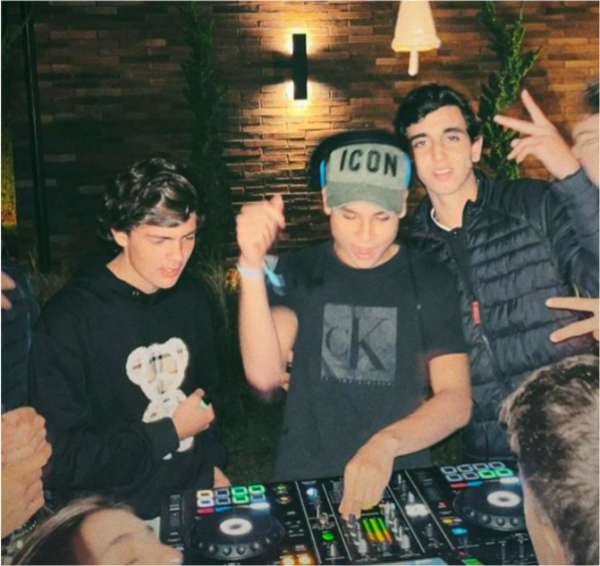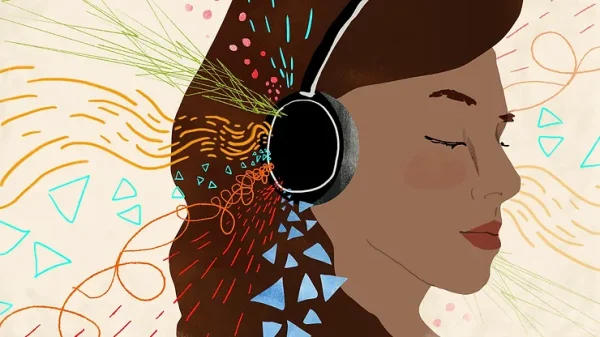Cheating, Pressure and Boredom Lead to Bad Decisions
Students lean over their desks and concentrate intensely on the exam in front of them. The sound of pencils scraping across paper fills the otherwise silent classroom. A boy in the corner carefully pushes up his left sleeve, revealing notes he had written on his arm that morning. Another opens a new tab and asks Mr. Google for an answer.
For some students, the pressure to succeed becomes too much, so they decide to take the easy way out. Many students today resort to cheating instead of trying to learn, and it’s a growing concern for educators.
TCS students have become accustomed to a lack of interest in their education and prefer to cheat just to receive good grades with minimal effort. This lack of motivation and concern for learning is a trend that impacts their academic performance, ethics, and character.
“I think the reason why students prefer to cheat rather than do the work is that there is a genuine lack of interest. They got used to living with ease, receiving good grades with minimal effort, and they no longer care if they learn or not. It makes me very sad,” Erika Atehortua, Grade 12 Spanish Teacher, said.
Cheating Happens
Cheating has become a trend among students and a growing concern for educators. The education system is partly responsible for this phenomenon. The emphasis on test scores instead of learning can create too much focus on grades.
Students have pressure to perform well in exams but suffer from a lack of engagement and interest in the different curriculum, leading students to resort to cheating as the easy way out.
“As I am a senior I am tired and in the stage of mind that the school is almost over I just rather do the least amount of work possible. I believe that the amount of work assigned in classes and the laziness we have as students just make us want the easy way out to receive a good grade,” Senior Sofia Soto said.
Additionally, the internet and technology have made it easier than ever before to access resources and information that help students cheat. Online websites and social media platforms provide students with the opportunity to share and exchange exam papers and other materials that give them an unfair advantage.
“When primary and secondary sources of information are used, they always have to be referenced. What happens is that students tend to appropriate information taken from the internet,” Atehortua said.
According to HS Vice Principal Paul Navarra, 1-2 students in referred for cheating each week. Despite the potential consequences of a falta gravisima, many students are willing to take risks and cheat to achieve good grades and secure their future.
Chat GPT, cheating’s new best friend
Chat GPT is an artificial intelligence chatbot that created a direct impact on cheating among students. This resource has made it easier for TCS students to cheat in various ways. For instance, some students may use this model to generate fake essays or responses for exams, which is difficult for teachers to detect.
“Chat GPT is increasing the cheating carried out by students because they are using it as their own instead of using it as a source of information,” Atehortua said.
While Chat GPT can provide many benefits in education, its use for cheating purposes highlights the need for educators and institutions to stay vigilant and implement effective measures to detect and prevent academic dishonesty.
“We have noticed an increase in the use of Chat GPT, and even though I believe it is an amazing tool, I would relate it to a knife. You can use it for good like to chop vegetables but you can also use it to stab somebody. So overall we need to learn how to use it properly,” Navarra said.
TCS has presented concerns regarding Chat GPT through an email sent to parents addressing how even though it is a tool that can help students, it is more often used for academic dishonesty as they copy and paste AI-generated text or take that text and paraphrase it.
“Something that worries me is how Chat GPT is still under construction, in some areas it is not reliable, which is very serious because if there are students who rely only on that source, they are going to end up building a fake reality,” Atehortua said.
Cheating hurts…
Cheating affects students’ academic performance, ethics, and character, which later on leads to a lack of self-confidence and self-worth as they become overly reliant on external resources to succeed. On the other hand, it can also harm their ability to learn and problem-solve independently, which are critical skills necessary for success in the real world.
“When students go to college and into the professional world they aren’t going to have learned the skills that they should have learned, I always think about how I would never want to have heart surgery with a surgeon that cheated his way through medical school,” Navarra said.
Cheating can create an unfair advantage for some students that leads to feelings of resentment and frustration among their peers who do work hard and study honestly. It is crucial for students to understand the importance of honesty, integrity, and hard work in achieving success and to recognize the long-term consequences of cheating, both for their academic and personal growth.
For instance, cheating can have significant long-term consequences for students as they transition into adulthood and the workforce. Cheating in school may create a pattern of behavior that could continue into their professional careers, where dishonesty and lack of integrity can have serious consequences such as losing one’s job or facing legal action.
“Cheating is something that is going to continue to happen because unfortunately, some students are wanting to take shortcuts, ultimately we will never be able to catch all the academic dishonesty, but at some point in time it will catch up in their lives,” Navarra said.





